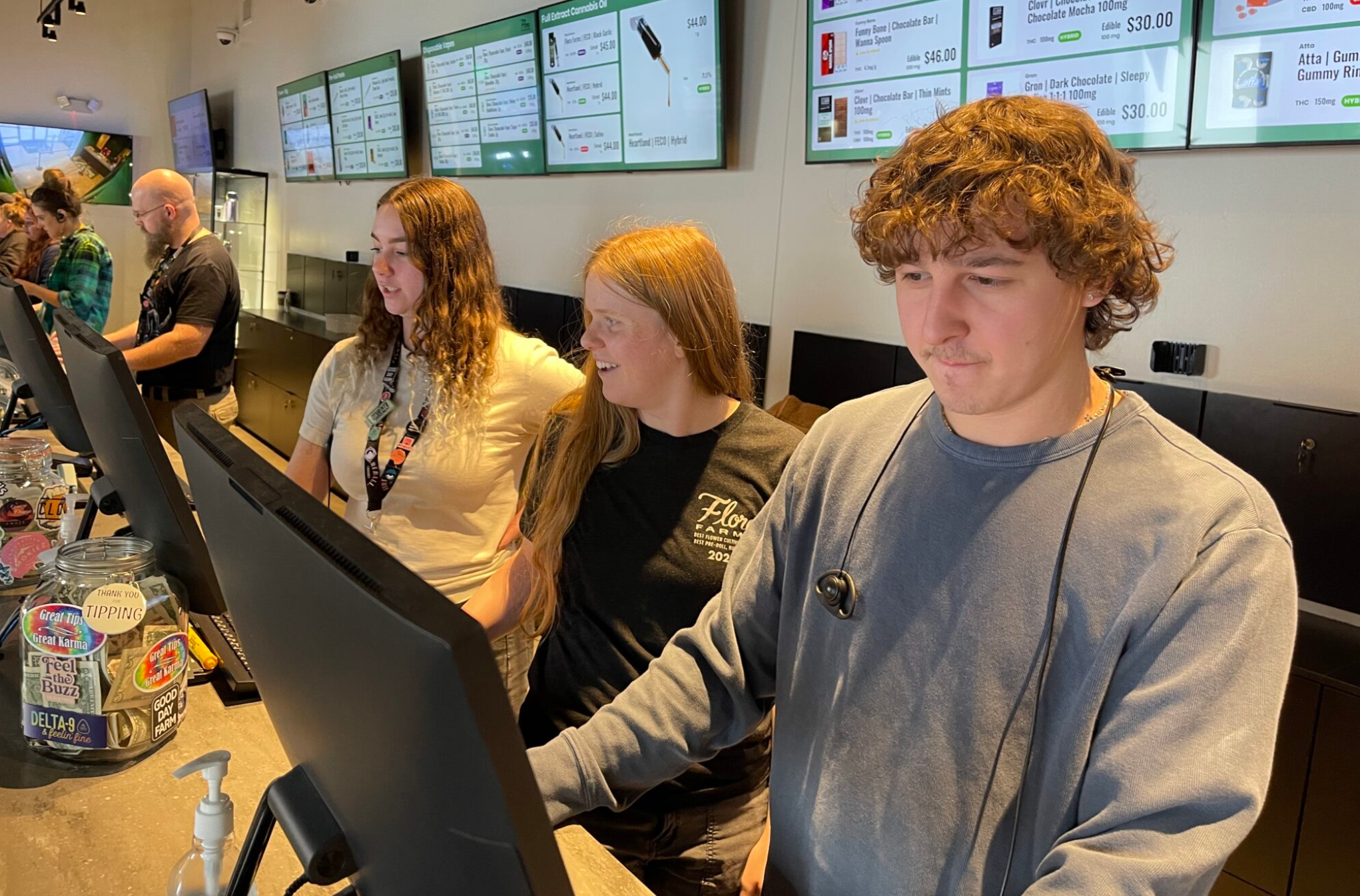
A back and forth in Missouri’s cannabis laws meant some marijuana workers didn’t go through the state highway patrol’s criminal screening for two years.
BY: REBECCA RIVAS
Missouri Independent
Missouri cannabis regulators say they’re halfway through getting fingerprint background checks for about 16,000 marijuana workers and volunteers who didn’t get them between 2022 and 2024.
Anyone who wants to work in the cannabis industry must get an “agent ID badge” through the Missouri Division of Cannabis Regulation, which is when the background check normally occurs.
Since the division began doing the retroactive fingerprint checks in February, the number of agent IDs has declined by 2,400 — going from 21,132 in February to 18,737 in June, according to the division’s data and reports webpage.
Lisa Cox, spokeswoman for the Missouri Department of Health and Senior Services, said only 17 people have had their agent IDs revoked because the fingerprinting process showed a disqualifying felony offense on their criminal record, as of July 15.
The vast majority, or 2,032 active agent IDs, have been “revoked due to non-submission of fingerprints,” Cox said. “Those who have been revoked for non-submission of fingerprints may reapply and should contact DCR directly for assistance with this request.”

When the state legalized medical marijuana in 2018, fingerprint background checks had been a requirement to apply for an agent ID card to work in the cannabis industry.
That mandate lasted until December 2022, when the recreational marijuana constitutional amendment went into effect and only required owners of cannabis companies to get fingerprinted. Other employees had to attest to not committing disqualifying offenses.
In 2023, Missouri lawmakers passed a bill to once again require all employees, contractors, owners and volunteers to submit their fingerprints to the Missouri Highway Patrol for a criminal background check.
However, it took until October 2024 for the FBI to approve the division’s statutory authority to review state and federal criminal background records, Cox said.
Since February, the division has been sending emails to individuals with agent ID cards approved between December 8, 2022 and December 1, 2024.
“Our request process is based on the date that the ID card was approved,” said Shayna Arndt, the division’s section director of patient and application services, during the July DCR Out Loud podcast. “We have sent out a message to the impacted agents and designated contacts for all facilities for the summer.”
The constitution states that people with a “disqualifying felony” can’t work in the industry, and that’s broadly defined as any violation of a state or federal law designated a felony under Missouri law.
According to the division, a lot of their review is subjective.
“What is written into law is then applied to each individual record, so it is a case-by-case analysis and can’t simply be determined by a checklist of potential offenses,” Cox told The Independent previously.
In the constitution, there is an exception for marijuana offenses eligible for expungement, and a time limit for other offenses.
An applicant can obtain an agent ID if they committed a non-violent offense more than five years ago and served no prison time. For other felonies, “more than five years have passed since the person was released from parole or probation, and he or she has not been convicted of any subsequent felony criminal offenses,” it states.
Every state handles background checks differently because the federal government doesn’t regulate the marijuana industry in any way, as it’s federally illegal.
Before the fingerprinting requirement went back into effect in December 2024, people could have their agent IDs approved and get to work within a 48-hour time period, said Christy Essex, who runs the largest Missouri-based cannabis staffing company, Se7en Staffing & Employment Solutions.
Now, it takes about 7-10 days. Essex believes that turnaround time could be faster if there were more state-approved facilities offered.
Despite the longer wait time, Essex said, “it’s definitely for the greater good to keep employees safe, the facilities safe, and the industry safe.”








